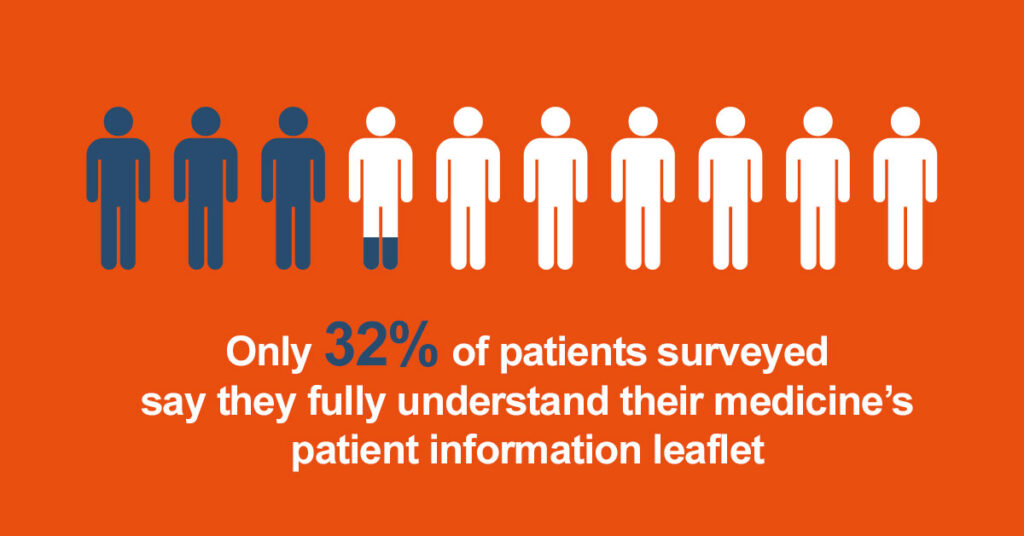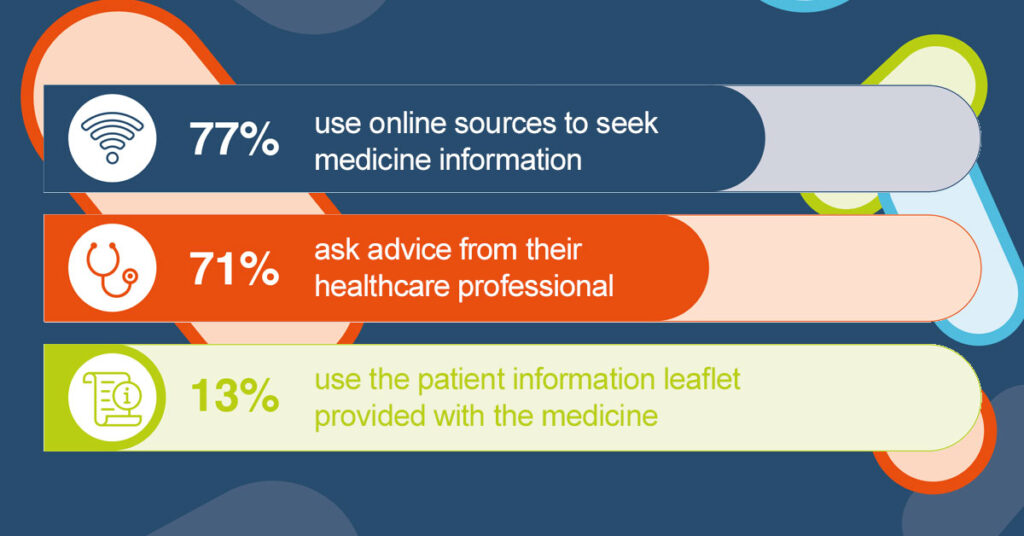New report highlights urgent need to modernise and improve understanding of the patient information leaflets (PILs).
A new report published this month (March 2023), One Size Doesn’t Fit All: reimagining medicines information for patients’ sought to understand what patients, carers, healthcare professionals (HCPs) and senior healthcare system stakeholders think about current medicines product information, and if it could be improved using digital solutions.
The survey of 2,897 patients in England, commissioned as part of the report, found only 32% of patients (n=743) who responded said they completely understand the information provided in the PIL and over half of patients who responded reported issues with readability (55%, n=1,124). Online sources and guidance from HCPs were the most popular ways that patients find out information about their medicines. Most patients who responded (77%; n=1,857) reported visiting online sources and 71% who responded seek further support from their HCPs (n=1,725).

To keep patients safe, regulators and pharmaceutical manufacturers have a statutory obligation to provide product information covering the most important instructions on how to take medicines correctly. However, a key finding of this report is that few people may be looking at this information systematically.

Authors of the report called for industry, government, regulators, third sector organisations and academia to come together with NHS patients and HCPs to design and implement change. The report also called for accelerated action across three areas to improve prescription information for patients including:
1) A patient-centric approach to medicines information,
2) Optimisation of technology and;
3) Building stronger connection between regulators and policy setters to develop and implement a UK roadmap for electronic product information (ePI).
Commenting on the report, Dr Des Holden, Chief Executive Officer of KSS AHSN said: “The report indicates significant improvement is needed so that patients in the UK can easily access and understand high quality information about their prescription medicines, regardless of their background. Real change can be achieved through collaboration across the system, but we must design solutions in partnership with a diverse range of people living with health conditions, and not just a small number of people who are easily heard. I believe the innovative medicines labelling of the future will improve accessibility and will enable people to thrive, despite the burden of a medical condition.”
The report was authored by Kent Surrey Sussex Academic Health Science Network (KSS AHSN), UK National Innovation Centre for Ageing (NICA), VOICE and Pfizer UK, with support from Unity Insights and National Institute for Health and Care Research (NIHR) Applied Research Collaboration Kent Surrey and Sussex (ARC KSS).
Find out more about the report here.





